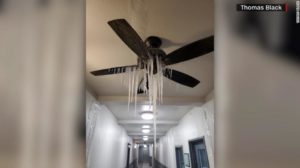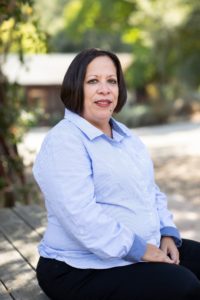Severe Weather Sparks Need for Community Shelter in Storms
San Antonio should join other U.S. cities in building resilience hubs
By DeeDee Belmares
 This article was first published in the April 30 edition of La Prensa.
This article was first published in the April 30 edition of La Prensa.
February’s Winter Storm Uri left over 300,000 San Antonio residents without electricity for days, revealing just how unprepared the city, CPS Energy and SAWS were for seveer weather of that magnitude.
In the aftermath, the lack of preparation angered and frustrated thousands of residents who endured frozen and broken water pipes. The blame game soon began, and Mayor Ron Nirenberg announced the formation of the Committee on Emergency Preparedness. This committee, made up of city council members and other community members, met to assess the city and utilities’ response and how to be better prepared for extreme weather. However, the committee didn’t have to look far to discover that the city already had a plan for a winter storm like Uri. Councilwoman Adriana Rocha-Garcia dug up a 2015 City of San Antonio Hazard Mitigation Plan, developed a year earlier.
According to the city of San Antonio’s website, “Development of the plan involves a risk assessment, multiple steps to analyze past and future hazard events that impact the area, and how these hazard risks and events affect people, buildings, and critical infrastructure. Another key component of the risk assessment is to assess the potential future impact of hazards based upon the current and projected development trends and plans for the City of San Antonio.”
What Winter Storm Uri revealed is that the city and its utilities were unprepared, and people suffered in the freezing temperatures without electricity or water. We can’t wait for the Committee on Emergency Preparedness to keep us safe. In early April, ERCOT asked Texans to conserve electricity due to a statewide power shortage because power plants were shut down for maintenance. We should be concerned because it’s still springtime and there is already stress on our power supply. ERCOT said recently that outages could happen again this summer if we have severe heat waves and high demand for power. Even as the Committee on Emergency Preparedness does its work, it’s up to community organizations and grassroots groups to take ownership of their neighborhoods and make plans to protect residents from heat waves or freezing storms. Cities across the nation are working to respond to climate events by creating resilience hubs, according to the Urban Sustainability Directors Network.
“Resilience Hubs are community-serving facilities augmented to support residents, coordinate communication, distribute resources, and reduce carbon pollution while enhancing quality of life,” the network says on its website. Hubs provide an opportunity to effectively work at the nexus of community resilience, emergency management, climate change mitigation, and social equity while providing opportunities for communities to become more self-determining, socially connected, and successful before, during, and after disruptions.”
These hubs are happening in Baltimore, Washington D.C. and Los Angeles and they can happen here in San Antonio, too. Community centers, churches or schools are a great start for forming a hub because these places are already providing much needed services to their community such as food distribution or community gardening. We know that severe weather – storms, heat waves, hurricanes, etc. – are going to keep happening because of climate change. That’s why it’s critical that we don’t wait until it’s too late. Summer is around the corner and we know that the heat is dangerous to our vulnerable neighbors like the elderly and children.
The safest place for people to be during extreme weather when power is out is to be in their homes. This is why it is important that CPS Energy help the most vulnerable neighbors by strengthening energy and efficiency programs to weatherize homes to keep them insulated. It will also save ratepayers energy and money.
Please encourage San Antonio city leaders to get behind this effort. Our communities deserve better our neighbors are seeking shelter in a storm.
 DeeDee Belmares is Public Citizen’s Climate Justice Organizer in San Antonio.
DeeDee Belmares is Public Citizen’s Climate Justice Organizer in San Antonio.